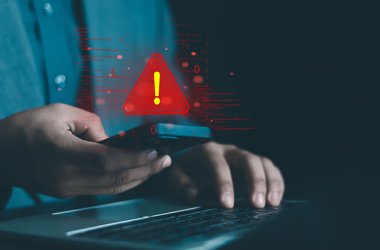 The panel discussion at the Kaspersky Lab Cyber Conference titled “Cyber Security Co-operation: Bringing Nations together” brought together a group of international experts along with the company’s CEO, Eugene Kaspersky to highlight the need for building an international framework to counter the growth of cybercrime and avoid a scenario of cyber war.
The panel discussion at the Kaspersky Lab Cyber Conference titled “Cyber Security Co-operation: Bringing Nations together” brought together a group of international experts along with the company’s CEO, Eugene Kaspersky to highlight the need for building an international framework to counter the growth of cybercrime and avoid a scenario of cyber war.
“While I do believe that the term ‘war’ is pretty harsh, there is no doubt that nation states are already investing in the latest and the most advanced technologies for espionage and other military operations,” said Michael Moran, assistant director, Cyber Security and Crime at Interpol.
“ICT is vital for socio-economic development. Therefore the repurcussions of a crash of this industry would be far more serious and resounding than those of the financial crisis across the world. I believe that although cyber war hasn’t happened yet, it is a real and evolving threat as nation states begin to amass advanced technologies to equip a country’s cyber defences. My question to the world is, must we really wait for a cyber war in order to stop it?” said Alexander Ntoko, head, corporate strategy division, International Telecommunication Union (ITU).
Moran added that cyber criminals have been successful in using the trust network that is the Internet for financial gain and even to discredit an international organisations reputation. “We fail to realise however, that national states can or are using the same advanced tools and technology that groups of cyber criminals have so expertly developed and tweaked. A cyber war, then, will only drive attention away from the fundamental issue at hand, that is cyber crime, leaving civil society at the mercy of sophisticated criminals that will continue to use the medium of the internet for financial gain,” Moran added.
Alexander Seger, secretary of the Cybercrime Convention Committee and head of Data Protection and Cybercrime Division of the Council of Europe, Strasbourg, France agreed. “There is no denying that the internet is being used ‘by many, against many’. We have already witnessed a number of ‘Denial of Rights’ (DOR) attacks where in governments have attacked media websites or hindered the flow of information to counter political opposition, a scenario much like a civil or cold war,” Seger explained.
The gathered experts agreed that while the lines that define cyber war are yet blurry, it is the responsibility of governments and law enforcement bodies to take the eventuality of this scenario seriously to protect their citizens and the world at large.
While there was a general consensus on the need to develop international treaties to counter these grave concerns, the panel did not deny the fact that developing these international treaties would be a difficult and bureaucratic process.
Instead the expert panel believed that the quickest way to address concerns associated with cyber war and increasing cyber crime would be to develop an international framework based on existing definitions and policies.
“I believe that the world must not wait for an international treaty but work towards reaching an accord based on what local law enforcement and governments have already been working on- best practices and theories established. We must consciously establish a framework for collaboration that is based on formalised partnerships between international and local law enforcement together with industry members like Kaspersky and other security companies,” said Ntoko.
Seger suggested that these frameworks and policies must separate issues into manageable portions and not deluge the lines between cyber war and cyber crime. Moran agreed adding that the establishment of an international framework would help agencies like the Interpol do a better job of protecting civic society and citizens by helping law enforcement categorise action based on the spread of the criminal operation, either local or international.
The panel added that while the responsibility to avoid a scenario of cyber war falls to governments, the responsibility to fight cyber crime falls on the shoulders of citizens and law enforcement. “People must consciously realise that anybody can fall victim to cyber criminals because they operate on a platform without borders. People must be proactive invest in anti malware and antivirus technologies and most importantly, be smart when using the Internet,” said Kaspersky.
He very aptly concluded, “People must realise now, that as long as this inhabit the Earth, they are in the heart of cyber crime.”
The Kaspersky Lab Cyber Conference, 2012: IT Security in the Age of Cyber Warfare was held at the Ritz Carlton, Cancun, Mexico from the 5th February through till the 8th of February 2012. Pallavi Sharma, assistant editor, CNME was reporting live from the conference. For live tweets from the event, follow @ComputerNewsME or @PallaviSharma5. More details on the conference and its participants will be available in the next issue of CNME.





